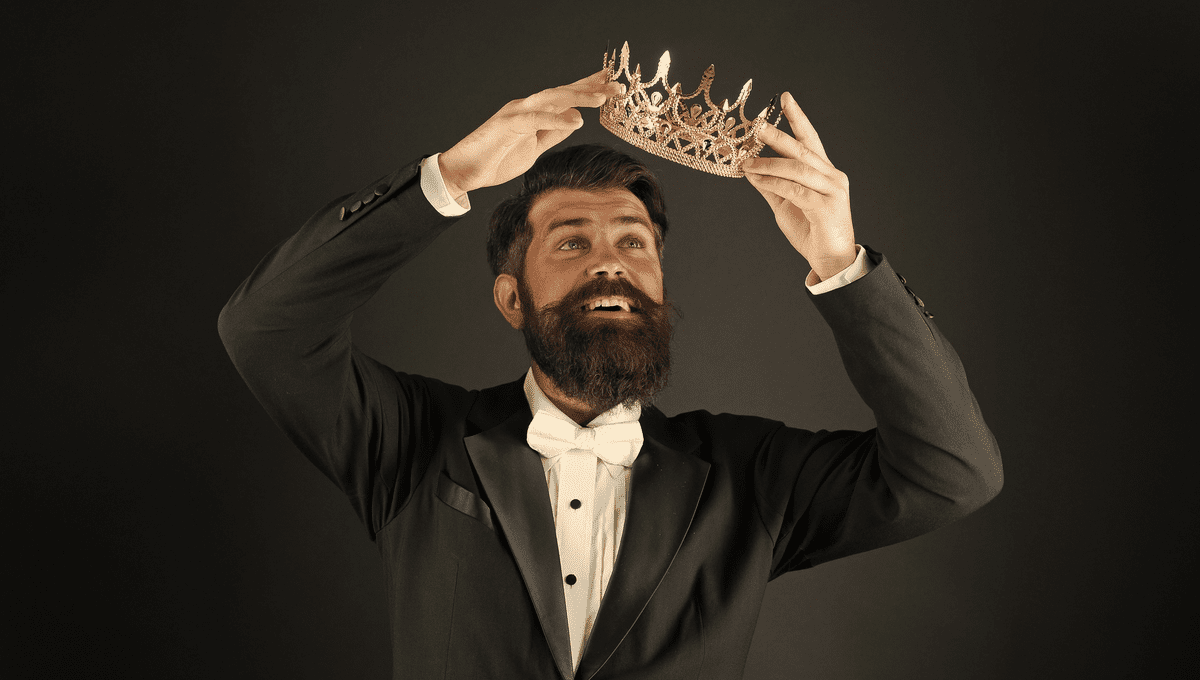
How do you spot a narcissist? Some say the clue is in their eyebrows, or their Insta follows, but a new study suggests a different tack: ask them if the moon landings were faked. Sound strange? It shouldn’t: plenty of studies have found that narcissists – people unusually convinced of their own superiority and entitlement to special treatment – are more likely than others to believe in conspiracy theories.
In fact, a person’s narcissism levels may be one of the best psychological predictors out there of their inclination to believe in the existence of birds or pedophilic Satan-worshippers in Congress.
But why? According to a new review published in the journal Current Opinion in Psychology, it comes down to the three specific traits that underpin the personality disorder: agentic extraversion, antagonism, and neuroticism.
Agentic extraversion refers to a person being assertive, self-confident, charming, tenacious, and reward-seeking. It sounds like a good trait, but in a narcissist, it goes into overdrive – self-confidence turns into grandiosity, and reward-seeking becomes the tell-tale narcissistic need for external admiration.
Antagonism, on the other hand – well, there’s no way to spin that into a nice personality trait. It encompasses the narcissistic habits of arrogance, dishonesty, and exploitation – all the ways that narcissists pit themselves against everybody else, and “defend” themselves against the “threat” of rivals.
Then there’s neuroticism, the last prong of the narcissism trident – and the least fun, from their point of view, since it’s linked to experiences like shame, low self-esteem, difficulties in relationships, and negative emotions.
When combined, it seems these cognitive tendencies make narcissists uniquely prone to donning the old tinfoil headwear. Firstly, “narcissists might endorse conspiracy theories due to their heightened paranoia,” explain the researchers: they “tend to believe that others are intentionally malicious and are out to get them.”
So, when a typical person hears something like “tech billionaires want to microchip you using vaccines in order to track your whereabouts,” they’ll most likely see it for what it is: a weird conspiracy. When a narcissist hears it – well, it fits right into their pre-established worldview.
Then there’s the need for dominance and control – a classic trait of both narcissism and conspiratorial belief. From the Salem Witch Trials to McCarthyism and now QAnon, there’s a “kind of boom in conspiracies whenever there’s political or social unrest throughout history,” Sander van der Linden, a social psychologist who researches conspiracies at the Social Decision-Making Lab at Cambridge, told Vox back in 2020.
“Climate change, coronavirus. It’s just another way to deny reality and having to think about your own fragility in the world,” he explained. “It’s an escape for people who are not so tolerant of uncertainty.”
For a narcissist – a person who needs to feel in control and superior over others – the idea that it’s “cultural Marxists” or “globalists” who are to blame for their setbacks is way easier than admitting a personal failing.
However, paranoia and desire for control aren’t the only things that define narcissism. After all, the disorder wasn’t named after somebody who was overly neurotic, it was named after the guy who fell in love with his own reflection – and the narcissistic trait of over-confidence and seeing yourself as “special” is precisely the type of itch that conspiracy theories are good at scratching.
“High need for uniqueness likely increases the appeal of conspiracy theories because they promise access to privileged information, making one feel special,” explain the study authors. After all, only loser normies would accept the idea that jet fuel could melt steel beams – and you’re not a loser normie, are you?
Since narcissists tend to be particularly bad at critical thinking – likely due to believing themselves so intelligent and capable that no such thoughtful reflection would be necessary – they also tend to be surprisingly naïve and gullible. In other words, a perfect mark for a conspiracy theorist.
“Those scoring high in narcissistic rivalry/antagonism […] were more gullible, that is insensitive to cues of untrustworthiness and vulnerable to being manipulated,” the researchers note.
“Furthermore, studies consistently show that […] narcissism [is] associated with a predisposition towards odd and unusual beliefs,” they add. “Conspiracy theories can be one example of such beliefs.”
So what does all this add up to? Well, one takeaway the authors point out is that narcissists are more likely to drive misinformation around the COVID-19 pandemic: “narcissistic admiration was linked to sharing and liking (but not believing or fact-checking) social media posts containing COVID-19 conspiracy theories,” they point out.
It makes sense: narcissism drives people to seek attention and approval, and something as eye-catching as “vaccines cause miscarriages” or “even pharma CEOs have refused to receive vaccines” is practically guaranteed to generate likes and interaction.
We don’t need to tell you what a big problem health misinformation is – just Google “rope worms” if you want a reminder of why you shouldn’t believe everything you read in a Minion meme – but the researchers warn that the connection with narcissism may make conspiracies even more dangerous.
That’s because narcissists “tend to view themselves as qualified for politics and tend to contemplate running for office,” they explain, with the personality type appearing to be “higher among political leaders (vs. the general population), especially those that are populist or autocratic.”
The recent uptick in conspiratorial speech among elected representatives (or failing that, those seeking to become elected representatives) is not surprising, therefore: “we can expect engagement with conspiracy theories among active politicians, particularly in times that challenge their feelings of power and control (e.g., elections),” they write.
Maybe it’s time to revisit that study about anti-narcissism interventions, what do you say?
Source Link: This Is Why Narcissists Are More Likely To Believe Conspiracy Theories